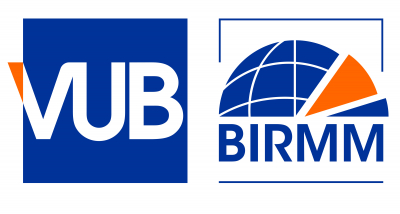BIRMM’s research can be divided into three broad research clusters:
1. The Multi-Level Governance of Migration, Equality and Diversity
Immigration and cultural diversity policies are core to definitions of national sovereignty. Still, over the last decades, elements of these policy areas have been shifted upwards, to the international level (EU and international organizations), downwards, to the sub-state level (regional and local authorities) and outwards (to countries of origin, transit and private actors). BIRMM researchers inquire into when, how and why multi-level governance of migration, equality and diversity takes place. They respond to questions like: How and why do policies diverge across policy levels, across countries, regions, cities and over time? How and why do different levels of authority coordinate migration, diversity and equality policies? Research programmes in political science, political theory and law also focus on the political representation and participation of ethnic minorities and intersectional groups; and on human rights dimensions in migration law. This research cluster offers a.o. unique research foci on the (external dimension of) EU migration governance (Florian Trauner, Ilke Adam, Philipp Stutz and Leonie Jegen), the Multi-Level Governance of immigrant integration in federal and decentralized states (Ilke Adam and Laura Westerveen) and the quality of representation in diverse societies (Karen Celis, Silvia Erzeel, Eline Severs). The BIRMM research domain on the multi-level governance of migration, equality and diversity benefits from its central location in Brussels, thereby profiting from the close-by European institutions to regularly organize policy-research dialogues with EU policy-makers and civil society organisations.
Main VUB research centres and departments: IES, POLI, RHEA, FRC, BRIO, Crime and Society, Cosmopolis
2. The Sociology of Migration, Equality and Diversity
Ethnic and racial diversity is increasingly intertwined with the phenomenon of social stratification. BIRMM researchers study the how’s and the why’s of immigrants’ and ethnic minority citizens’ (un)equal participation in different societal spheres: education, labour-market, health, religion, communication, crime, politics and housing. While doing so, they focus on the study of mainstream institutions, the practices of every day discrimination, and features of the ethnic minority and majority populations. They particularly address the influence of the intersections of ethnicity/race with other discriminatory mechanisms like gender, age, religion, health status, handicap, class and sexuality. This research cluster offers a.o. unique research foci on migrant’s health (a.o Hadewijch Vandenheede and Wanda van Hemelrijck), methodological development in discrimination testing (a.o. Pieter-Paul Verhaeghe and Dounia Bourabain) and migrants and digital connectivity (Kevin Smets). Within this cluster, the VUB holds a Fatima Mernissi Chair in Gender and Islam (Iman Lechkar), not only promoting research on gender and Islam, but also building bridges between academia and civil society (opinion makers, civil society organisations, artists, activists and different types of stakeholders), thereby reaching a very large and diverse Brussel’s public.
Main VUB research centres and departments: Interface Demography, TOR, IES, POLI, RHEA, Crime and Society, CEMESO, BRIO
3. Migration, Diversity and the City
Cities are both catalysts and embodiments of societal change. Although the presence of migrants is a ubiquitous phenomenon throughout urban history, processes of accelerated societal transformation tend to entail momentous changes in migration patterns and create new fields of tension and conflict, which, together pose fundamental challenges to the existing social order. BIRMM researchers try to understand how formal and informal regulations developed to cope with these challenges influence patterns of integration and conflict, neighbourhood disintegration and urban renewal. We postulate that the arrival of large numbers of newcomers in specific local settings spurs regulatory actions by city governments, established residents and newcomers alike, the interactions of which produce specific integration patterns and foster new modes of urban life. This research cluster offers a.o. a unique research focus on city governance of migration and diversity in current and present times (19th century, a.o. Bas van Heur, Anne Winter, Nick Schuermans, Pieter-Paul Verhaeghe, Patrick Deboosere). Within this research cluster, active academia-civil society/policy dialogues are set up through the Brussels Academy, an ‘urban and citizens university on the city’. The Brussels Academy recurrently organizes the StadsSalonsUrbains lectures, joining a public or researchers, policy makers and civil society discussing a.o. the governance of diversity in cities.
Main research centres: Cosmopolis, RHEA, HOST, Crime and Society, Interface Demography, IES
